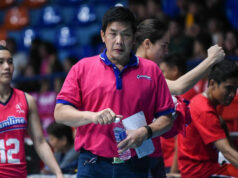In retrospect, Patrick Reed speaking out was, perhaps, the most predictable offshoot of a forgettable Ryder Cup experience. Christened “Captain America” for his unabashed, if over the top, displays of partisanship, he failed to live up to the promise borne of his two previous stints and was relegated to the far end of Team USA’s understandably somber post-event press conference. He wasn’t heard from then, but he clearly had a lot on his mind, and barely had an hour passed before he pounced on an opportunity to get his points across.
The interview with The New York Times’ Karen Crouse showed Reed in his typical candid self, aiming at specific targets, but, in shooting from the hip, likewise producing collateral damage. He lashed out at teammate Jordan Spieth, who, he argued, set aside a productive pairing with him in order to play with longtime buddy Justin Thomas. His pronouncement stemmed from the very last query in the Team USA presser that he hinted he was prevented from responding to.
Reed’s quotes on the Times pictured him as a jilted partner. And because they bore the same sentiments his wife Justine expressed via a series of Tweets earlier in the day, he had evidently been stewing in them for quite a while. Apart from Spieth, he likewise took aim at Team USA captain Jim Furyk, contending that “I don’t think it’s smart to sit me twice.” In the process of unloading his fusillade, he wound up zinging erstwhile idol Tiger Woods as well. The all-time great, he recounted, apologized to him for their twin losses, with his train of thought indicating that the failures were not his.
Whether or not Reed will dial down his criticisms remains to be seen. History seems to point to him standing his ground. From his college transfer to his estrangement with his family to his playing style to his off-the-cuff pronouncements, he has refused to apologize for being, well, himself. In part, it’s because taking on a steely countenance is how he has long responded to controversy. In larger measure, it’s due to his capacity to turn adversity to his advantage. And, admittedly, his me-against-the-world view has led to results on the course.
No doubt, there will be a lot of pushback on Reed’s revelations. Team USA’s chartered flight to Atlanta from Paris could not have been pleasant. If there’s anything stalwarts of the old red, white, and blue have proven time and again, its their capacity to weather even self-induced tempests. Then again, the fact that compartmentalizing is ingrained to them can’t be all good. And the negatives are, lo and behold, especially apparent in the Ryder Cup — where heart is most important, where head is often flummoxed, where humility is sometimes mistaken for surrender, and where homework is never a guarantee of favorable outcomes.
Anthony L. Cuaycong has been writing Courtside since BusinessWorld introduced a Sports section in 1994.



